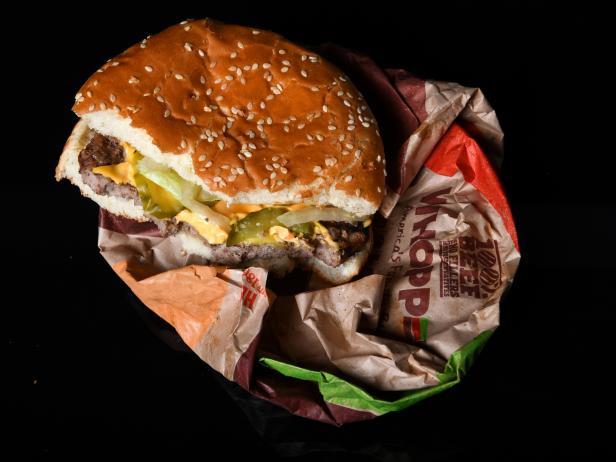Lawsuit Alleges Burger King’s Whoppers Aren’t as Big as They Claim
The plaintiffs say the chain "materially overstates" the size of burgers and sandwich items in advertisements and on menu boards.

The Washington Post/Getty Images
How much do you expect your fast-food meals to look like the pictures on the ads and menu boards — and how reasonable are those expectations?
That question seems to be at the heart of a lawsuit that has been brought against Burger King alleging that the chain is making its signature “Whopper” look bigger on menu boards than it actually is. And soon, we may have an answer.
On August 23, a U.S. district judge rejected parts of a bid by Burger King to dismiss a class-action lawsuit. While the judge, Roy K. Altman, granted two out of four of Burger King’s motions to dismiss the plaintiffs’ complaints, he denied two others, allowing the suit — 22-20925 - Coleman et al v. Burger King Corporation, filed in the Miami office of the United States District Court Southern District of Florida — to proceed.
The suit alleges that Burger King, in its ads and menu boards, “materially overstates” both the size of some burgers and sandwiches, including the Whopper, as well as the amount of beef in them. The plaintiffs say Burger King used to advertise its Whoppers more accurately, but that in September 2017, “Burger King began to materially overstate the size of its burgers in its advertisements.”
A “side-by-side comparison of Burger King’s former Whopper advertisement to the current Whopper advertisement shows that the burger increased in size by approximately 35% and the amount of beef increased by more than 100%,” the plaintiffs allege. “Although the size of the Whopper and the beef patty increased materially in Burger King’s advertisements, the amount of beef or ingredients contained in the actual Whopper that customers receive did not increase.”
The plaintiffs say the images of the Burger King menu items prompted them to buy them, that they were disappointed to find that the burgers and other items were smaller and contained less meat than they expected, and that, had they known the items were going to be smaller than advertised, they wouldn’t have bought them.
As a result, they are asking for financial compensation and demanding that Burger King either change its advertising or discontinue the menu items in question.
Burger King, for its part, says food ads are always styled to make items “look as appetizing as possible,” adding, “That is hardly news; reasonable consumers viewing food advertising know it innately.” It also says it clearly states that its Whoppers contain a quarter pound of beef.
The Burger King suit is not the only such lawsuit winding its way through the court system. McDonald’s, Wendy’s and, most recently, Taco Bell are all facing similar suits, in which plaintiffs are seeking millions of dollars in damages.
Related Content:






























































